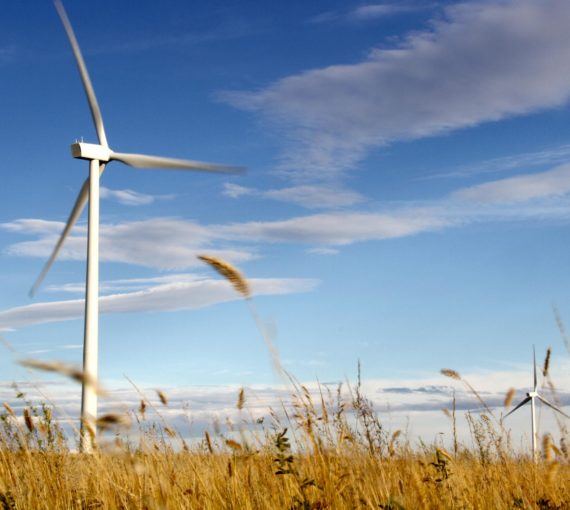To assess Budget 2018 from a climate action perspective, we need to put announcements in the context of the budget’s emphasis on protected areas, as well as the foundations for climate action laid out in Budget 2017.
The 2017 federal budget was widely acknowledged for its major down payment on climate action and progress toward meeting our Paris Agreement commitments:
- Funding to implement the Pan-Canadian Framework on Clean Growth and Climate Change: This covers a range of climate initiatives, including critically important legwork to regulate the phase-out of coal-fired electricity.
- Funding to support the technical work and consultations needed to develop regulations for a national clean fuel standard: This climate action tool has the potential to make an outsized contribution to lowering greenhouse gas emissions, by requiring that fuel suppliers lower the carbon intensity of fuels used in Canadian vehicles, rewarding firms that decarbonize most effectively. Meanwhile, drivers will hardly notice a cost difference. Those who switch to electric vehicles won’t be affected.
In June 2017, the federal government also announced the $1.4 billion Low Carbon Economy Leadership Fund to help provinces that signed up to the Pan-Canadian Framework achieve their climate objectives. With Manitoba signing on to the framework at the end of February, only Saskatchewan remains on the sidelines. Provinces need to move quickly to implement key climate policies with the support of the federal government.
These investments, strongly supported by the David Suzuki Foundation community, have started to pay dividends over the past year. For instance, the federal government recently published draft regulations for the electricity sector requiring that coal be phased out by 2030.
Budget 2018 by the numbers: the good and the disappointing
DSF was pleased that Budget 2018 includes a landmark investment of $1.3 billion over five years to protect and restore nature. This funding will help Canada address its biodiversity crisis and meet its international commitment to protect a minimum of 10 per cent of its oceans and 17 per cent of its land and freshwater by 2020.
While Budget 2018 was largely focused on protected areas, climate action was not put on hold.
Funding for climate action includes:
- $109 million over five years to enforce the federal carbon pollution backstop price system
- $20 million over five years to assess the effectiveness of the Pan-Canadian Framework
- $123 million and a five-year extension to a program that increases competitiveness of the clean energy sector through accelerated deductions for investments made before 2025 in clean energy assets
However, the budget missed some opportunities:
- No inclusion of a carbon levy on fuels used for aviation and maritime shipping
- No mention of future increases to the carbon price after it reaches $50 a tonne in 2022
- Failure to include an EV strategy and additional support for charging infrastructure
- Stalled progress on scaling up Canada’s international climate finance contributions to assist developing countries shift to low-carbon development
A note on transit
While government stuck by its previous commitment of $20.1 billion over 10 years for new capital investments, one concern is the back-loading of funding under Public Transit Bilateral Agreements — $11.2 billion (or 56 per cent of the spending) is held back until the final three years (2025 to 2028). However, tempering this concern, since the budget was published, federal government actions demonstrate it is serious about improving transit. The federal government has now signed bilateral agreements that commit federal funds to support major transit projects over the coming 10 years in N.W.T. ($8.3 million), New Brunswick ($165 million), Ontario ($8.3 billion) and B.C. ($4.1 billion), with more anticipated in coming weeks.
The fact that provinces will be able to count on federal transit dollars helps efforts to tackle congestion and accelerate the decarbonization of transportation.
Beyond Budget 2018
There were a few other climate-related items in the budget, such as funding to replace the National Energy Board with the new Canadian Energy Regulator. DSF will work to help ensure that this change makes future energy infrastructure decision-making processes more focused on ensuring compliance with the Paris Agreement.
In summary, Budget 2018 offers three steps forward and two backwards when it comes to decarbonizing Canada’s economy. Supportive measures on climate action are offset by lack of progress on other important policies such as phasing out subsidies to the oil and gas industry. These inconsistencies need to be resolved for Canada to make the deep emissions cuts needed to make progress on climate mitigation.
Over the coming months, DSF will continue to advocate for the Pan-Canadian Framework and meeting Canada’s Paris Agreement commitments. In future budgets, beyond slashing subsidies and other priorities described above, we will also advocate for funding to help Canadians make energy efficiency improvements, and to support community-led renewable energy projects.
Our work
Always grounded in sound evidence, the David Suzuki Foundation empowers people to take action in their communities on the environmental challenges we collectively face.




